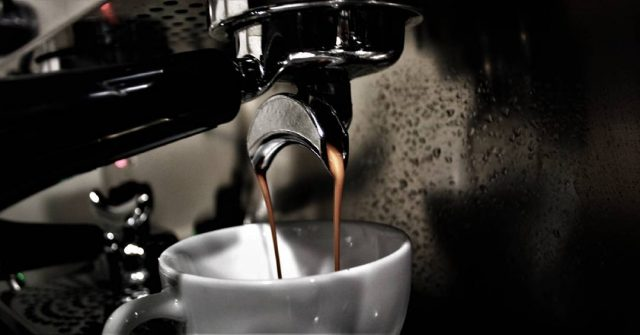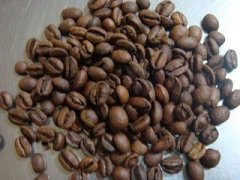Do I have to raise fresh coffee beans? The "shelf life" ≠ "taste period" of coffee beans!

Professional coffee knowledge exchange more coffee bean information please follow the coffee workshop (Wechat official account cafe_style)
Coffee beans are better fresh? "raise beans" vs. "fresh-baked", which is better or worse?
There is really nothing to discuss about the "freshness" of ingredients, but it is troublesome for coffee beans, and our experience is that guests are full of misunderstandings and misunderstandings about this issue. If you still think that coffee beans are "practical information" like tea, and think that they can be used for two years as soon as they are thrown away from the refrigerator, to paraphrase Mel Gibson's dialogue, "it's time to fix it."
The unspoiled ingredients are called "fresh"? This definition does not apply to coffee beans.
The problem is that the "shelf life" and "taste period" of coffee beans are too inconsistent. In addition, the definition of "taste period" is also related to the error control and tolerance of the brewer.
The "shelf life" ≠ "taste period" of coffee beans
General ingredients will be marked with "expiration date", which means that the ingredients will not rot before this period, so please feel at ease to eat them.
Coffee beans are roasted at a high temperature of more than 200 degrees Celsius, and if they are packaged immediately after cooling, the chances of bacterial survival are extremely low, so the "spoilage" factor of food materials is almost non-existent, only the problem of oxidative deterioration. If the oxygen can be removed as much as possible during packaging, the deterioration of beans will be extremely slow. It makes sense for brands from Starbucks to IS Coffee to label coffee beans with a "shelf life of six months".
But the problem is that the main reason for the "dry aroma" of coffee is that almost most of the aroma substances produced after roasting are highly volatile organic compounds, and the more fragrant you smell, the more these substances volatilize and the coffee beans lose their flavor when they are volatilized to a certain extent. If you don't believe me, just after grinding the fresh coffee beans, there is a slight spicy feeling in the strong fragrance. If you put it back for 10 minutes, there will be only a soft and mild fragrance, which is different from the majestic and majestic smell of 10 minutes ago.
According to our less sophisticated experimental estimates, the flavor of coffee beans stored in airtight storage at room temperature decreased by 10% after 10 days and more than 30% after a month. The next question is, according to this flavor decline curve, how to determine the "taste period"?
The key to determining the "taste period" lies in the degree of error of the cooking method.
If you are as good at brewing as Zhanlu requires, there will be a 10% flavor difference in coffee beans. Therefore, the coffee beans used in Zhanlu store set the "taste period": they will be used up within a week, and they will be removed from the shelves and destroyed if they are not used up.
Of course, most guests lack sophisticated equipment and craftsmanship at home: the rate of grinding fine powder is too high, the water temperature is not controlled properly, the cooking method is unstable, and the powder filling is not accurate. The extraction error caused by various uncertain factors is not less than 30%. This means that the natural flavor of coffee beans has to decline by more than 30% before the difference in taste can be found "obviously" by the average household. As a result, Zhan Lu usually advises customers who buy beans for their own use to set the "appreciation period" within one month after baking.
The conclusion is that the "shelf life" of coffee beans is limited, but the "taste period" is a relative concept, which exists relative to the control of cooking variables.
The plight of a wise cook
If you have expertise in brewing and the equipment is good enough, congratulations. You can enjoy a good cup of coffee at any time. Unfortunately, the "taste period" of coffee beans is relatively shorter in your professional skills, because you can easily tell the difference between coffee beans on different roasting dates.
Lucky? Is it misfortune? It depends on your request for coffee. However, from what has been discussed above, we can derive the most basic rule for preserving coffee ingredients: coffee beans are fresh ingredients. Buy the freshest and cook them as soon as possible.
If you still insist on using coffee beans as tea, it doesn't matter if you "think" it's okay to keep it for a year, or even "think" it's getting better and better like Pu'er tea, then I'll give you a piece of advice: don't spend too much money on beans. Whether it is high-quality beans or basic beans, the taste is the same after baking for a month.
.
Important Notice :
前街咖啡 FrontStreet Coffee has moved to new addredd:
FrontStreet Coffee Address: 315,Donghua East Road,GuangZhou
Tel:020 38364473
- Prev

How to Roast Green Coffee Coffee Roasting Learning Resources (Books, Discussions, Apps, etc.)
Professional barista communication Please pay attention to coffee workshop (Weixin Official Accounts cafe_style) coffee roasting learning resources Are you trying to improve your roasting technology? Or solve problems? Or would you like to know more about those amazing green coffee beans? A true bean baker relies on practice, experience, and a real understanding of the characteristics of his own bean dryer. but this does
- Next

How long does coffee bean grow? Do I have to wait more than three weeks to drink it?
Professional coffee knowledge exchange More coffee bean information Please pay attention to coffee workshop (Weixin Official Accounts cafe_style) Coffee beans fresh is better? "Green beans" vs."Fresh baked beans", cooked better or worse? The problem is, you need to grow beans. After two weeks of drinking, the more you drink, the more explosive the aroma. Bean farming, what's going on? The function of raising beans is to exhaust after baking
Related
- Beginners will see the "Coffee pull flower" guide!
- What is the difference between ice blog purified milk and ordinary milk coffee?
- Why is the Philippines the largest producer of crops in Liberia?
- For coffee extraction, should the fine powder be retained?
- How does extracted espresso fill pressed powder? How much strength does it take to press the powder?
- How to make jasmine cold extract coffee? Is the jasmine + latte good?
- Will this little toy really make the coffee taste better? How does Lily Drip affect coffee extraction?
- Will the action of slapping the filter cup also affect coffee extraction?
- What's the difference between powder-to-water ratio and powder-to-liquid ratio?
- What is the Ethiopian local species? What does it have to do with Heirloom native species?

